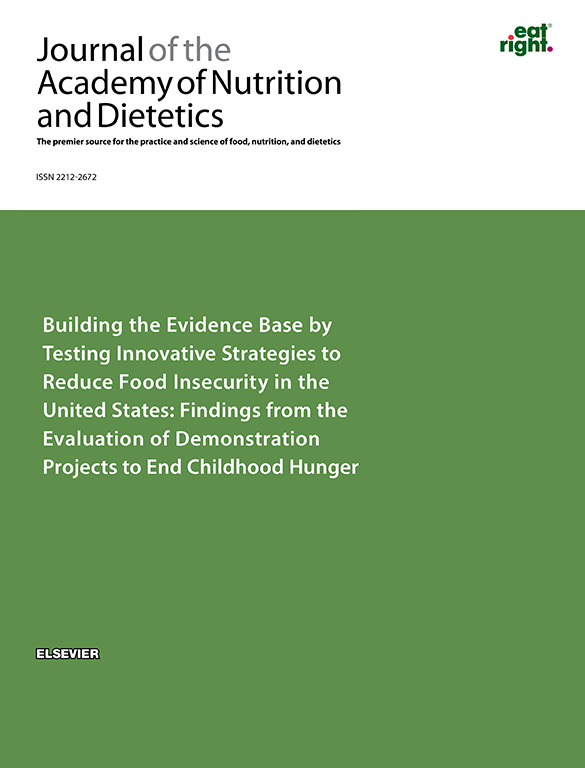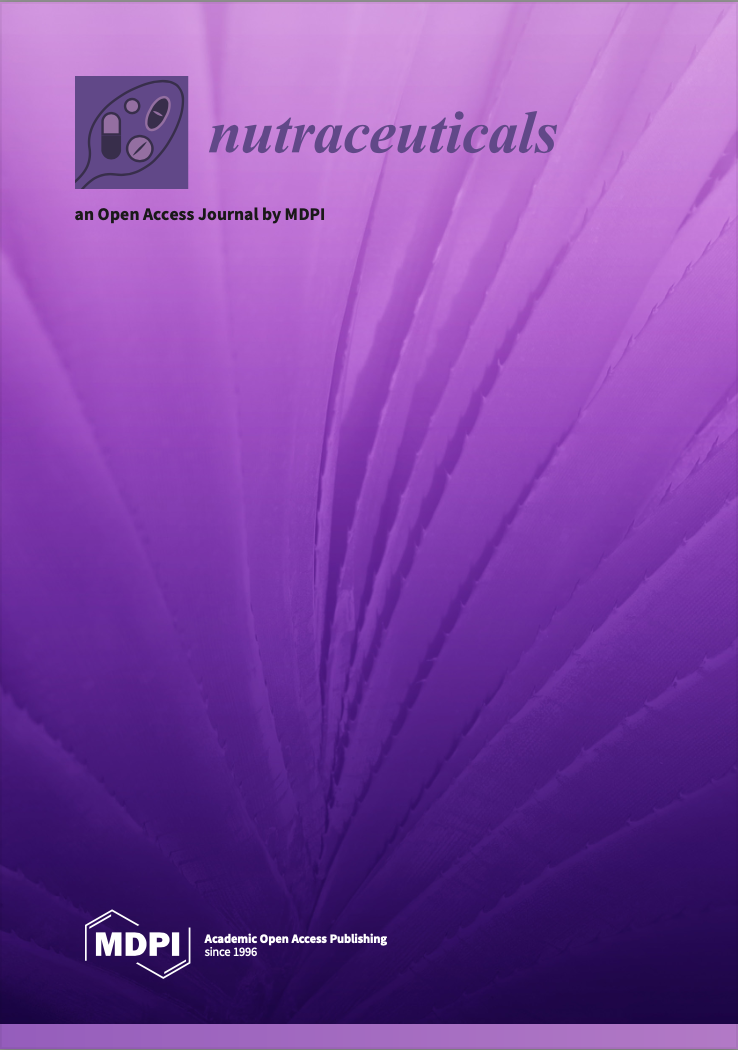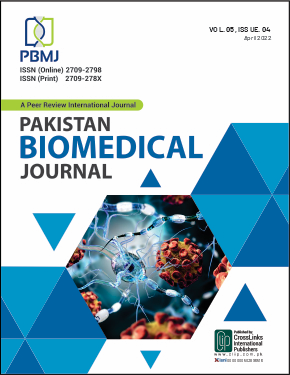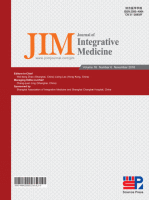Hypercholesterolemia
How to submit an article:
- Registered users can submit any published journal article that has a unique DOI (Digital Object Identifier) name or link to Research Hub.
- For example, you can paste the full DOI link:
https://doi.org/10.1109/5.771073or just the DOI name:10.1109/5.771073into the field above and click submit. - The person who is first to submit a valid article to Research Hub will forever be credited for it, and every article submission earns you +6 Research Points.
Related Topics
Published research studies are articles that present the findings of original research that has undergone a peer-review process and has been made publicly available in scholarly journals, books or other media.

Avocado Consumption and Cardiometabolic Health: A Systematic Review and Meta-Analysis
2022 Dec Journal of the Academy of Nutrition and Dietetics James-Martin G, Brooker PG, Hendrie GA, Stonehouse W
Systematic Review Meta-Analysis Cholesterol AvocadoAvocado consumption may lead to a reduction in total cholesterol and low-density lipoprotein cholesterol levels in people with high cholesterol without impacting body weight.

Arctium lappa Lam. and Its Related Lignans Improve Hyperglycemia and Dyslipidemia in Diabetic Rodent Models: A Systematic Review and Meta-Analysis
2022 Nov 11 Nutraceuticals Watanabe S, Yamabe S, Shimada M
Animal Study Systematic Review Meta-AnalysisA. lappa (burdock root) benefits diabetic rodents by reducing blood glucose and improving lipids, but human effects are uncertain

Hypolipidemic effect of Sesame Seed Oil: A Review
2022 Apr 30 Pakistan BioMedical Journal Arshad M, Ashfaq M, Rizwan B, Zanib R, Fatima A, Pervaiz R, et al.
Sesame seed oil and its derivatives have shown to be highly effective in managing hyperlipidemia and dyslipidemia due to their lipid ameliorating and anti-oxidative effects.
Experimental Study Review Article Cholesterol Sesame Oil Hypercholesterolemia
Hypolipidemic and anti-atherosclerogenic effects of aqueous extract of Ipomoea batatas leaves in diet-induced hypercholesterolemic rats
2021 May Journal of Integrative Medicine Ntchapda F, Tchatchouang FC, Miaffo D, Maidadi B, Vecchio L, Talla RE, et al.
Our findings suggest that I. batatas leaves have hypolipidemic and anti-atherosclerogenic properties and justify their use in traditional medicine.
Animal Study Atherosclerosis Hypolipidemic Sweet Potato
A Randomized Placebo-Controlled Clinical Trial to Evaluate the Medium-Term Effects of Oat Fibers on Human Health: The Beta-Glucan Effects on Lipid Profile, Glycemia and inTestinal Health (BELT) Study
2020 Mar 03 Nutrients Cicero AFG, Fogacci F, Veronesi M, Strocchi E, Grandi E, Rizzoli E, et al.
Randomised Controlled Trial OatsDaily intake of 3 grams of oat beta-glucans significantly reduces LDL-Cholesterol, Total Cholesterol, and non-HDL-Cholesterol levels without impacting intestinal well-being or glucose levels.
Research insights are moderated by the Research Hub team and offer an at-a-glance overview of interesting research findings.

2022 Journal of the Academy of Nutrition and Dietetics
Avocado consumption may lead to a reduction in total cholesterol and low-density lipoprotein cholesterol levels in people with high cholesterol without impacting body weight.
Systematic Review Avocado Cholesterol
Avocado Consumption and Cardiometabolic Health: A Systematic Review and Meta-Analysis
James-Martin G, Brooker PG, Hendrie GA, Stonehouse W

2022 Nutraceuticals
A. lappa (burdock root) benefits diabetic rodents by reducing blood glucose and improving lipids, but human effects are uncertain
Animal Study
Arctium lappa Lam. and Its Related Lignans Improve Hyperglycemia and Dyslipidemia in Diabetic Rodent Models: A Systematic Review and Meta-Analysis
Watanabe S, Yamabe S, Shimada M

2020 Nutrients
Daily intake of 3 grams of oat beta-glucans significantly reduces LDL-Cholesterol, Total Cholesterol, and non-HDL-Cholesterol levels without impacting intestinal well-being or glucose levels.
Randomised Controlled Trial Oats
A Randomized Placebo-Controlled Clinical Trial to Evaluate the Medium-Term Effects of Oat Fibers on Human Health: The Beta-Glucan Effects on Lipid Profile, Glycemia and inTestinal Health (BELT) Study
Cicero AFG, Fogacci F, Veronesi M, Strocchi E, Grandi E, Rizzoli E, et al.

2019 Nature Communications
Pu-erh tea was found to lower triglyceride and total cholesterol levels more significantly than green, oolong, or black teas.
Experimental Study Cholesterol Digestive Health Fatty Liver Disease Pu-Erh Tea Theabrownin
Theabrownin from Pu-erh tea attenuates hypercholesterolemia via modulation of gut microbiota and bile acid metabolism
Huang, F., Zheng, X., Ma, X. et al.

2019 Journal of Functional Foods
Consumption of virgin avocado oil, rich in monounsaturated fatty acids and bioactive components, may help manage chronic diseases like hypertension, diabetes, and lower cardiometabolic risk.
Systematic Review Avocado Oil Fatty Liver Disease High Blood Pressure Type 2 Diabetes
Virgin avocado oil: An emerging source of functional fruit oil
Tan CX
Review Articles
Review articles summarise and critically evaluate the current state of research on a specific topic or field by synthesising multiple primary research studies.

Avocado Consumption and Cardiometabolic Health: A Systematic Review and Meta-Analysis
2022 Dec Journal of the Academy of Nutrition and Dietetics James-Martin G, Brooker PG, Hendrie GA, Stonehouse W
Systematic Review Meta-Analysis Cholesterol AvocadoAvocado consumption may lead to a reduction in total cholesterol and low-density lipoprotein cholesterol levels in people with high cholesterol without impacting body weight.

Arctium lappa Lam. and Its Related Lignans Improve Hyperglycemia and Dyslipidemia in Diabetic Rodent Models: A Systematic Review and Meta-Analysis
2022 Nov 11 Nutraceuticals Watanabe S, Yamabe S, Shimada M
Animal Study Systematic Review Meta-AnalysisA. lappa (burdock root) benefits diabetic rodents by reducing blood glucose and improving lipids, but human effects are uncertain

Hypolipidemic effect of Sesame Seed Oil: A Review
2022 Apr 30 Pakistan BioMedical Journal Arshad M, Ashfaq M, Rizwan B, Zanib R, Fatima A, Pervaiz R, et al.
Sesame seed oil and its derivatives have shown to be highly effective in managing hyperlipidemia and dyslipidemia due to their lipid ameliorating and anti-oxidative effects.
Experimental Study Review Article Cholesterol Sesame Oil Hypercholesterolemia
Virgin avocado oil: An emerging source of functional fruit oil
2019 Mar Journal of Functional Foods Tan CX
Systematic Review Review Article High Blood Pressure Fatty Liver Disease Type 2 Diabetes Hypercholesterolemia Avocado OilConsumption of virgin avocado oil, rich in monounsaturated fatty acids and bioactive components, may help manage chronic diseases like hypertension, diabetes, and lower cardiometabolic risk.
Clinical Trials
Clinical trials are research studies that involve people and are conducted to evaluate the safety and efficacy of new treatments or interventions, such as drugs, medical devices, or behavioural therapies.
Study Protocols
Published study protocols are detailed plans that outline the objectives, methodology, statistical analyses, and organisation of a research study that have been made publicly available for others to review and use as a reference.
Presentation Slides

Systematic Review
Avocado consumption may lead to a reduction in total cholesterol and low-density lipoprotein cholesterol levels in people with high cholesterol without impacting body weight.
James-Martin G, Brooker PG, Hendrie GA, Stonehouse W

Animal Study
A. lappa (burdock root) benefits diabetic rodents by reducing blood glucose and improving lipids, but human effects are uncertain
Watanabe S, Yamabe S, Shimada M

Randomised Controlled Trial
Daily intake of 3 grams of oat beta-glucans significantly reduces LDL-Cholesterol, Total Cholesterol, and non-HDL-Cholesterol levels without impacting intestinal well-being or glucose levels.
Cicero AFG, Fogacci F, Veronesi M, Strocchi E, Grandi E, Rizzoli E, Poli A, Marangoni F, Borghi C

Experimental Study
Pu-erh tea was found to lower triglyceride and total cholesterol levels more significantly than green, oolong, or black teas.
Huang, F., Zheng, X., Ma, X. et al.

Systematic Review
Consumption of virgin avocado oil, rich in monounsaturated fatty acids and bioactive components, may help manage chronic diseases like hypertension, diabetes, and lower cardiometabolic risk.
Tan CX
Executive Summary
Write an executive summary in the form of a blog article on the topic of "Research into Chinese medicine treatment for Hypercholesterolemia" summarising the research below and using language that can be easily understood by patients and avoiding medical jargon using a professional and caring tone of voice.
Write an executive summary in the form of a blog article on the topic of "Researched Chinese medicine treatments for Hypercholesterolemia" summarising the research below in an objective and easy to understand way, and using language that can be easily understood by patients. Group the article into Chinese medicine treatments first, followed by nutrition and other treatments. Avoid using medical jargon and use a professional and caring tone of voice.
Write me a concise but easy to understand executive summary on the topic of "Chinese medicine treatments for Hypercholesterolemia" based on the following research that I will give you. Your summary should be 2 paragraphs long in Australian English spelling and include references to the studies.
A Systematic Review published in 2022 in the journal Journal of the Academy of Nutrition and Dietetics found that Avocado consumption may lead to a reduction in total cholesterol and low-density lipoprotein cholesterol levels in people with high cholesterol without impacting body weight. The study reviewed the impact of diets containing avocado on cardiometabolic risk factors compared with diets containing no or low amounts of avocado. Five electronic databases were searched aiming to identify studies published between 1990 and 2021. The selected studies included randomized controlled trials of three weeks or more and prospective cohort studies. In total, ten studies, nine controlled trials, and one observational study, met the inclusion criteria. Risk of bias was evaluated, and overall quality of the evidence was inspected. Meta-analyses were performed when there were three or more studies of the same design reporting the same outcome. Upon reviewing the results, the study found a minor, noteworthy reduction in total cholesterol levels in the avocado group as opposed to the control groups. There was no significant difference found in low-density lipoprotein cholesterol, high-density lipoprotein cholesterol, or triglycerides. However, in populations with hypercholesterolemia, avocado consumption demonstrated significant reductions in both total cholesterol and low-density lipoprotein cholesterol levels. It is also worth noting that consumption of avocados did not negatively affect body weight or composition.
A Animal Study published in 2022 in the journal Nutraceuticals found that A. lappa (burdock root) benefits diabetic rodents by reducing blood glucose and improving lipids, but human effects are uncertain This study analyzed the effects of A. lappa (burdock root) and related compounds on diabetic rodents. Results showed that these substances can lower blood glucose levels and improve triglyceride and cholesterol levels in these animals, depending on factors like the type of diabetes model used. However, it's essential to remember that these findings are based on animal studies, and we need more research to know if they apply to humans and prolonged use may have adverse effects.
A Randomised Controlled Trial published in 2020 in the journal Nutrients found that Daily intake of 3 grams of oat beta-glucans significantly reduces LDL-Cholesterol, Total Cholesterol, and non-HDL-Cholesterol levels without impacting intestinal well-being or glucose levels. The BELT Study was a double-blind, placebo-controlled, cross-over randomized clinical trial conducted over 8 weeks. It involved 83 Italian subjects with moderate hypercholesterolemia, who had low cardiovascular risk and followed a Mediterranean diet. The participants were administered either 3g/day of oat beta-glucans or a placebo. The results indicated that beta-glucans significantly reduced LDL-C, TC, and non-HDL-C levels in participants from both the baseline and the 4 and 8-week marks. However, no notable impact was observed on fasting plasma glucose or self-perceived intestinal well-being. These outcomes remained consistent irrespective of whether the subjects were given the beta-glucans or the placebo.
A Experimental Study published in 2019 in the journal Nature Communications found that Pu-erh tea was found to lower triglyceride and total cholesterol levels more significantly than green, oolong, or black teas. Comparative studies using rodents treated with Pu-erh tea, green tea, and black tea provided supporting evidence that fully fermented Pu-erh tea is more effective in causing hypolipidemic and hypocholesterolemic effects compared to other partially fermented and non-fermented teas.
A Systematic Review published in 2019 in the journal Journal of Functional Foods found that Consumption of virgin avocado oil, rich in monounsaturated fatty acids and bioactive components, may help manage chronic diseases like hypertension, diabetes, and lower cardiometabolic risk. The research paper is a review that explores various extraction methods developed for producing virgin avocado oil (VAO) and the oil yields for these methods. It additionally details the physicochemical composition of VAO, focusing specifically on its high concentration of monounsaturated fatty acids and bioactive components, such as α-tocopherol and β-sitosterol. The results discussed indicate that VAO, which is mainly composed of oleic, palmitic, and linoleic acids, can be utilized as a functional oil offering potential health benefits. In particular, the intake of avocado oil could aid in managing conditions like hypercholesterolemia, hypertension, diabetes, and fatty liver disease, taking advantage of its rich composition. Furthermore, it was noted that the oil could also reduce cardiometabolic risks and exhibit properties that can combat microbial activity.
Moderation Tools
Topic
Sign In
Users not signed in are limited to viewing the 5 most recent items of content.